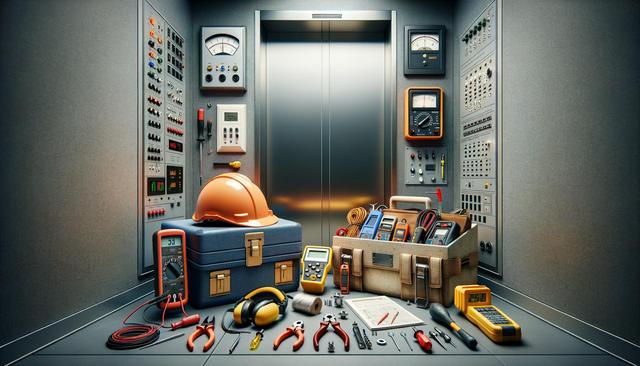Understanding the Role of an Elevator Technician
Before entering an elevator mechanic training program, it’s important to understand the scope and responsibilities of this profession. Elevator repair technicians are specialized tradespeople who install, maintain, and repair elevators, escalators, and other lift systems in residential, commercial, and industrial buildings. These systems are complex and require a strong foundation in mechanical, electrical, and safety principles. The daily tasks often include inspecting equipment, diagnosing issues, replacing faulty parts, and ensuring compliance with safety codes. In addition to technical skills, technicians must also be able to read blueprints, follow detailed instructions, and communicate effectively with clients and team members.
This trade is physically demanding and often involves working at heights, in tight spaces, and during irregular hours. However, the work is rewarding, especially for those who enjoy solving mechanical problems and working with their hands. As cities grow vertically and existing infrastructure ages, the need for skilled elevator technicians continues to increase, making this a stable and promising career path.
What You’ll Learn in an Elevator Mechanic Training Program
Elevator mechanic training programs are designed to give students the hands-on experience and theoretical knowledge needed to succeed in the field. These programs typically blend classroom instruction with practical training and apprenticeships. Over the course of the program, students can expect to cover a wide range of topics, including:
- Basic electrical and mechanical systems
- Blueprint reading and technical schematics
- Hydraulic and traction elevator systems
- Control systems and circuitry
- Safety codes, regulations, and best practices
In addition to technical skills, students are also trained in problem-solving, workplace safety, and customer service. Programs may vary in length, but most take about four to five years to complete, including the apprenticeship component. During this time, learners work under the supervision of experienced professionals to gain hands-on experience in real-world environments.
The Importance of Apprenticeships in Elevator Training
One of the most critical components of elevator mechanic training is the apprenticeship. Unlike many academic programs, this trade requires extensive on-the-job learning, where trainees apply their classroom knowledge in practical settings. Apprenticeships are usually arranged in partnership with unions, trade associations, or employers, and they provide a pathway to licensure in most regions.
Apprenticeships offer several benefits:
- Mentorship from experienced elevator technicians
- Exposure to a variety of systems and building types
- Opportunities to develop specialized skills
- Steady income while learning
Most states or provinces require a certain number of apprenticeship hours before allowing technicians to take licensing exams. These programs not only build competence but also help trainees develop a professional network, which can lead to future job opportunities.
Certifications and Licensing Requirements
After completing a training program and apprenticeship, aspiring elevator technicians typically need to obtain certification or licensure, depending on local regulations. Licensing exams often test knowledge of safety codes, troubleshooting skills, and understanding of elevator systems. Certification from recognized industry organizations can also enhance credibility and employment prospects.
Common licensing requirements may include:
- Completion of a recognized training program
- Documented apprenticeship hours
- Passing a written or practical exam
- Ongoing education to maintain certification
Regulatory bodies vary by location, so it’s essential to research the specific requirements in your area. Staying up-to-date with industry standards and technologies is crucial for long-term success in the field, and many technicians take continuing education courses throughout their careers.
Career Outlook and Opportunities in the Field
The demand for skilled elevator repair technicians continues to grow as urban development accelerates and existing infrastructure requires modernization. According to labor market data, the job outlook for elevator installers and repairers is projected to remain strong, with competitive wages and long-term stability. Many technicians work for installation firms, maintenance companies, or building management services, with opportunities to specialize in different areas such as modernization or high-rise systems.
Career advancement is also possible. With experience, technicians may move into supervisory roles, project management, or even open their own service businesses. Some may choose to become inspectors or trainers, contributing to the next generation of skilled workers. The blend of technical challenge and job security makes this trade appealing to those seeking a hands-on career with room to grow.
Conclusion: Preparing for a Rewarding Technical Career
For individuals who enjoy mechanical systems and want a stable, well-paid profession, elevator mechanic training offers a comprehensive pathway into a dynamic field. From the classroom to real-world apprenticeships, the training process equips you with the skills and knowledge needed to thrive. With ongoing demand and opportunities for advancement, becoming an elevator repair technician is a practical and rewarding choice.




Leave a Reply